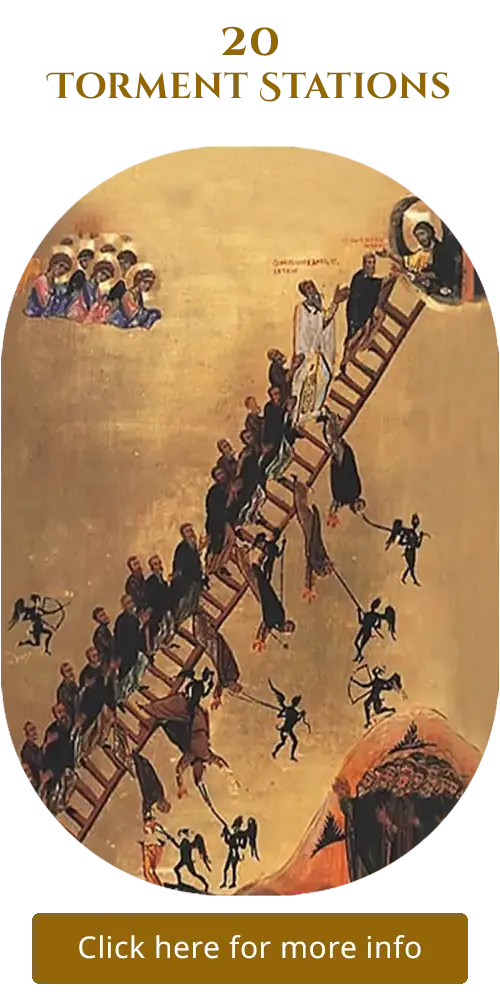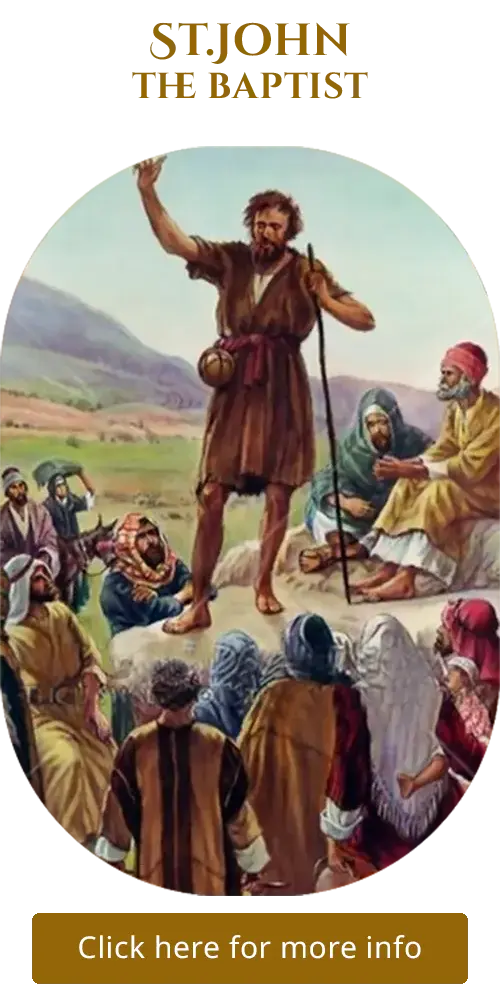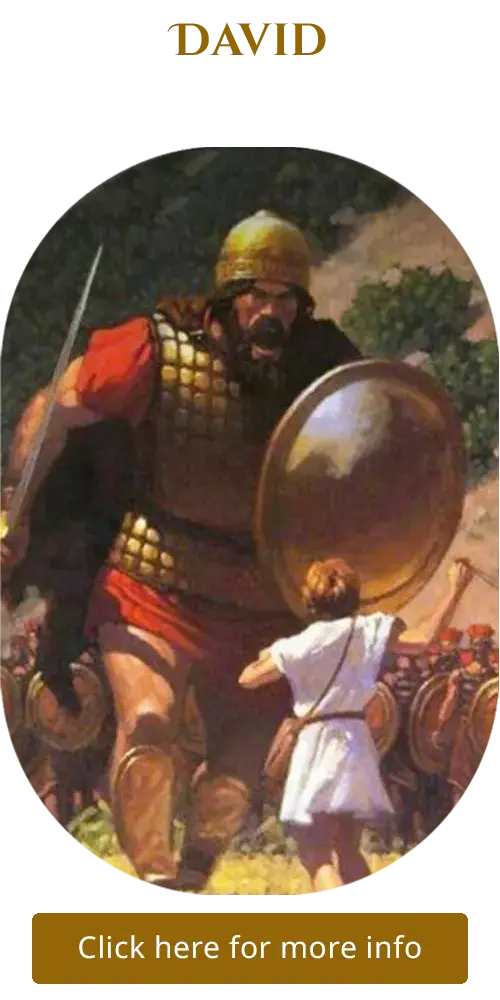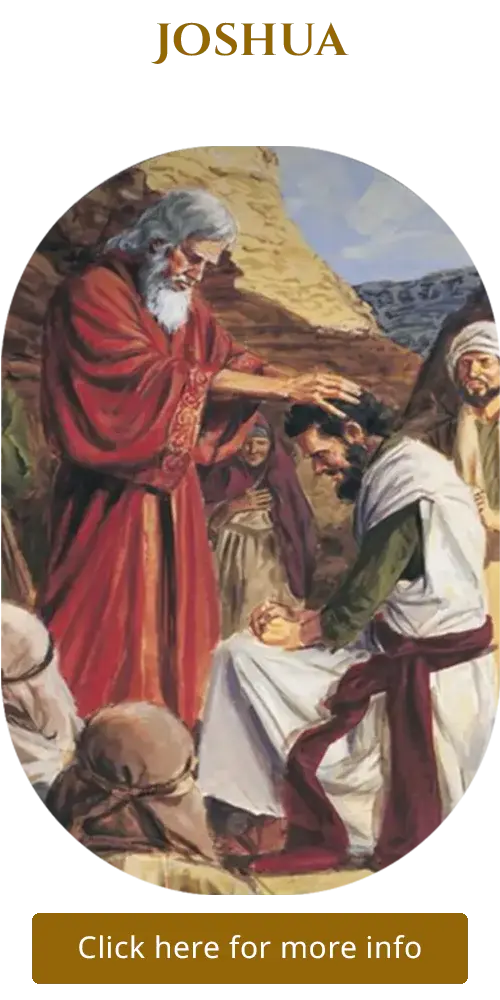St. Barthlomew
Outside Paintings - North Wall
Joshua
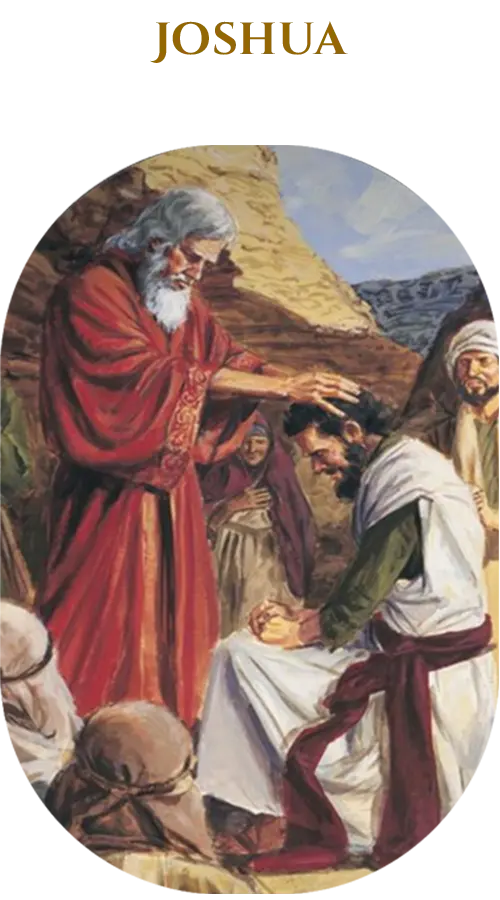


Reference: Book of Joshua, Exodus 17, Numbers 13–14, 27, 32, Deuteronomy 31–34
Early Life and Role Under Moses
Joshua, son of Nun from the tribe of Ephraim, was born in Egypt during the Israelites’ slavery, likely around 1400 BCE. Originally named Hoshea (“salvation”), Moses renamed him Joshua (“Yahweh is salvation”). He was a military leader, defeating the Amalekites at Rephidim by holding the battle under Moses’ raised staff, demonstrating his courage and faith.
Joshua became Moses’ trusted aide, accompanying him partway up Mount Sinai during the giving of the Law and guarding the tent of meeting. He was one of twelve spies sent to scout Canaan. Only he and Caleb returned with a positive report, trusting God to deliver the land despite its fortified cities and giant inhabitants (e.g., the Anakim). The other ten spies’ fear led to Israel’s rebellion, resulting in 40 years of wilderness wandering. Joshua’s faith earned him and Caleb exemption from God’s judgment, ensuring their entry into Canaan.
Moses publicly appointed Joshua as his successor, with God commissioning him to lead Israel into the Promised Land. Joshua’s leadership was affirmed by divine signs, such as the Spirit’s presence and Moses’ laying on of hands.
Leadership and Conquest of Canaan
Joshua became a leader after Moses’ death around 1375 BCE. Now likely in his 80s, Joshua led Israel across the Jordan River into Canaan, an event marked by miracles. The Jordan parted when the priests carrying the Ark of the Covenant stepped into it, allowing the Israelites to cross on dry ground. This affirmed Joshua’s divine appointment, as God promised to exalt him as He did Moses.
Key Conquests
1. Jericho: After renewing the covenant through circumcision and celebrating Passover at Gilgal, Joshua encountered a mysterious “commander of the Lord’s army,” possibly a theophany (divine appearance). God instructed Joshua to march around Jericho’s walls for seven days. On the seventh day, the priests blew trumpets, the people shouted, and the walls collapsed, allowing Israel to capture the city. All inhabitants were killed except Rahab, who had sheltered the spies.
2. Ai and Bethel: Israel’s initial defeat at Ai resulted from Achan’s sin of taking forbidden spoils from Jericho, violating God’s command. After Achan’s execution, Joshua used a strategic ambush to capture Ai, burning the city and killing its inhabitants. Bethel was also defeated, securing central Canaan.
3. Southern and Northern Campaigns: The Gibeonites deceived Joshua into a peace treaty by posing as distant foreigners. This treaty, upheld despite the deception, reflects Joshua’s commitment to oaths. Joshua then defeated a southern coalition of five Amorite kings (including Jerusalem’s king) at Gibeon, where God extended the day. The northern campaign culminated in the battle of Hazor, a major Canaanite city, which was burned.
Allocation of the Land
After the conquest, Joshua oversaw the division of Canaan among the twelve tribes. The tribes of Reuben, Gad, and half of Manasseh settled east of the Jordan, while the others received western territories. Cities of refuge were established for those guilty of unintentional manslaughter, and Levites received designated cities. Joshua’s leadership ensured a structured settlement, though intertribal conflicts persisted.
Final Years and Legacy
In his final days, Joshua gathered Israel at Shechem for a covenant renewal. He recounted God’s faithfulness from Abraham to the conquest, urging the people to “choose this day whom you will serve”. The Israelites reaffirmed their commitment to God, and Joshua set up a stone as a witness. He died at age 110 and was buried in Timnath-serah in Ephraim. His leadership marked a high point of Israelite unity and faith.

